Doctor Oana Calo, hopelessly in love with medicine
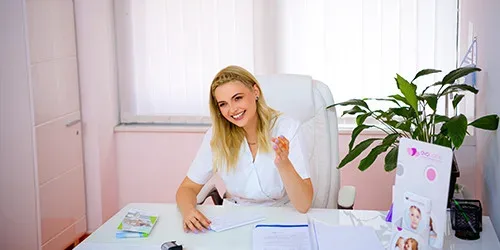
Interviw with Doctor Oana Calo
Oana’s attraction to medicine began during her childhood. Not many people aspire to become doctors from an early age and remain committed to that path until adulthood.
Dr. Oana Calo believes that true medicine is practiced with passion and total dedication. She is convinced that a good doctor must empathize with patients by listening to them. A warm smile can change a prognosis and ensure cooperation in the application of treatment.
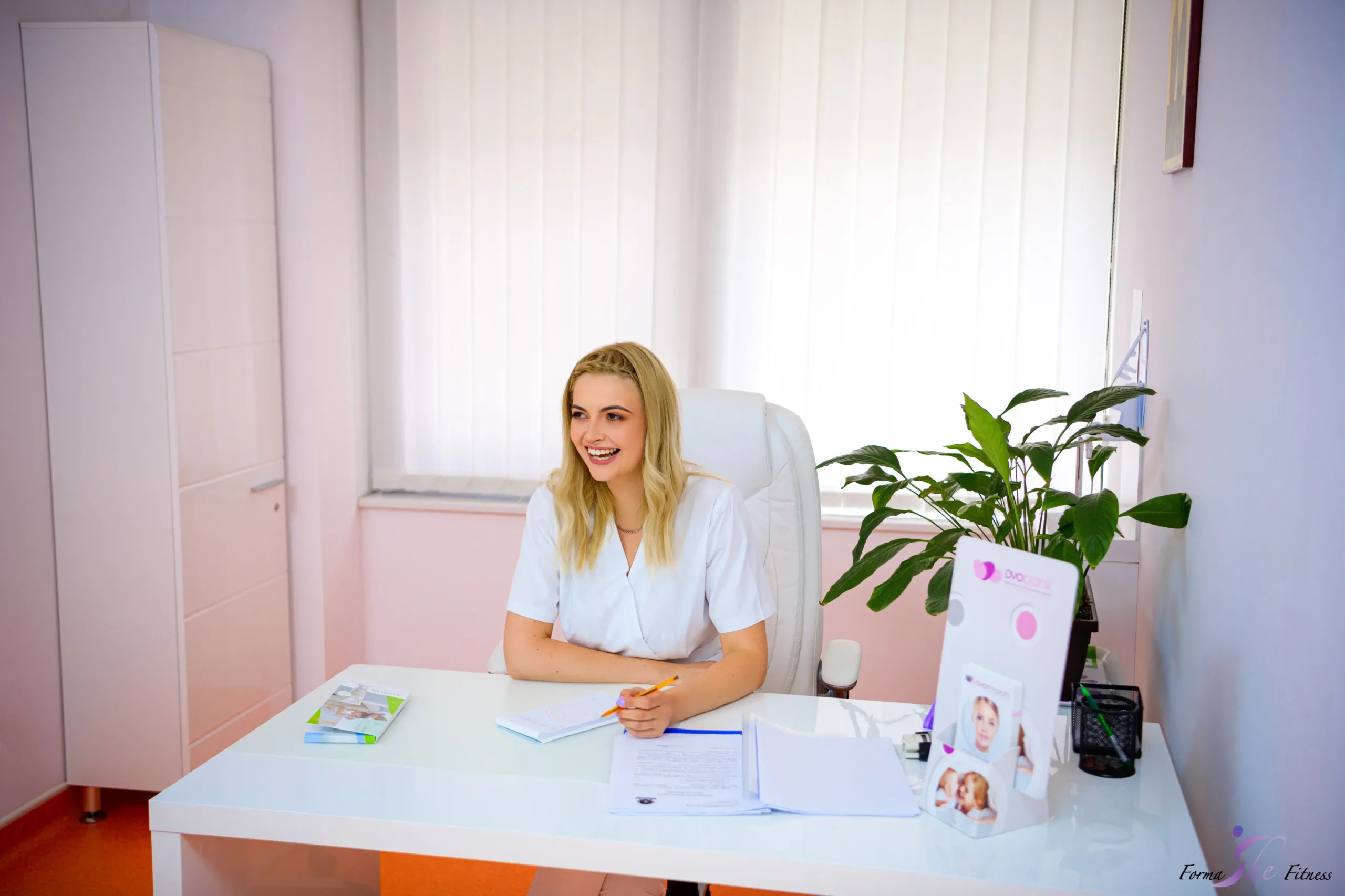
Trace your journey in the world of medicine. What led you to choose this trajectory?
I can say that my journey into medicine began with the opening of the first encyclopedia, specifically the chapter on anatomy. The desire to understand the mechanisms of the human body helped me choose this profession, which I practice with passion.
The decision was clear from my childhood, and through hard work and perseverance, I have reached the point where I can proudly say I am a “doctor” – a label that children use in their games and has become a seal of my future. The work starts in college, six years of theoretical and practical training, followed by another five years of residency, where you have the right to practice under the supervision of an experienced doctor.
I chose obstetrics and gynecology as my specialty, and everything I learned in college formed the foundation of solid medical knowledge necessary for interacting with patients and providing medical care.
Completing medical studies takes a long time, namely 11 years. What were the greatest challenges, and how important is the guidance of a mentor?
During college, I believe the greatest challenge was combining theoretical knowledge with practical experience. The first three years were theoretical, and then we started interacting with patients. That’s why the early years were quite difficult because I didn’t understand how the theoretical concepts could be applied in medical practice. Later, I realized that without that knowledge base, medical practice cannot be achieved.
During residency training, I realized how different the portrayal of a doctor’s life is in college compared to the actual responsibilities it entails.
The challenges of residency begin with applying knowledge into practice. Specifically, the first time you consult a patient, the first maneuvers you perform, under supervision, of course, and the first surgical intervention.
The issues within the healthcare system are well-known to the general public, and enthusiastic residents may encounter certain shortcomings of the system, both in the learning process and in providing optimal patient care.
I learned a lot from all the medical staff, but having a mentor is essential for professional development. Medical conduct, patient communication, and the entire aspect of “bedside manners” are extremely important, and first, you need to observe and then implement what you learn.
No medical student will graduate from college fully prepared to face any disease and treat any patient. These things are learned during residency, under the guidance of an experienced doctor. I was fortunate to have three mentors throughout my journey towards specialization – Dr. Mihaela Bot, Associate Professor, Dr. Aida Petca, and Dr. Daniel Tutunaru – each making an equal contribution to my formation.
I am deeply grateful for the opportunity to learn from them, as they are exceptional physicians. Perhaps I would have encountered more challenges during residency if I hadn’t had them by my side to guide and train me. Initially, I was drawn to obstetrics, but with their help, I discovered laparoscopy, urogynecological surgery, and assisted reproduction techniques,
branches that I would like to further explore. Alongside the doctors in the team I worked with, I learned about finding happiness in the workplace, which is not a myth. It is created and maintained by teamwork, passion, and dedication to patients.
People need to be informed about health and their lifestyle to prevent diseases. Since adolescence, you have shown interest in the field of public health, supporting presentations on topics such as sexual education, cervical cancer, and HPV, as well as being involved in donation campaigns. You have also been involved in volunteer campaigns throughout your six years of General Medicine. What have these experiences brought to your life, and how were they received by the target audience of these campaigns and presentations?
I chose to get involved in public health because I noticed a real need for medical education among Romanians. I wanted to contribute something to educating people, especially the younger generation. For example, sex is a taboo topic in our society, and sexual education is often neglected. I wanted to break the silence and provide accurate information to young people so that they can make informed decisions.
The presentations on cervical cancer and HPV aimed to raise awareness and emphasize the importance of prevention and early detection. In addition, I have been involved in donation campaigns, promoting the importance of blood and organ donation. These experiences have enriched my life by allowing me to make a difference and positively impact the lives of others.
The campaigns and presentations were generally well-received, as people appreciated the information provided and the opportunity to actively participate in improving their health and the well-being of others.
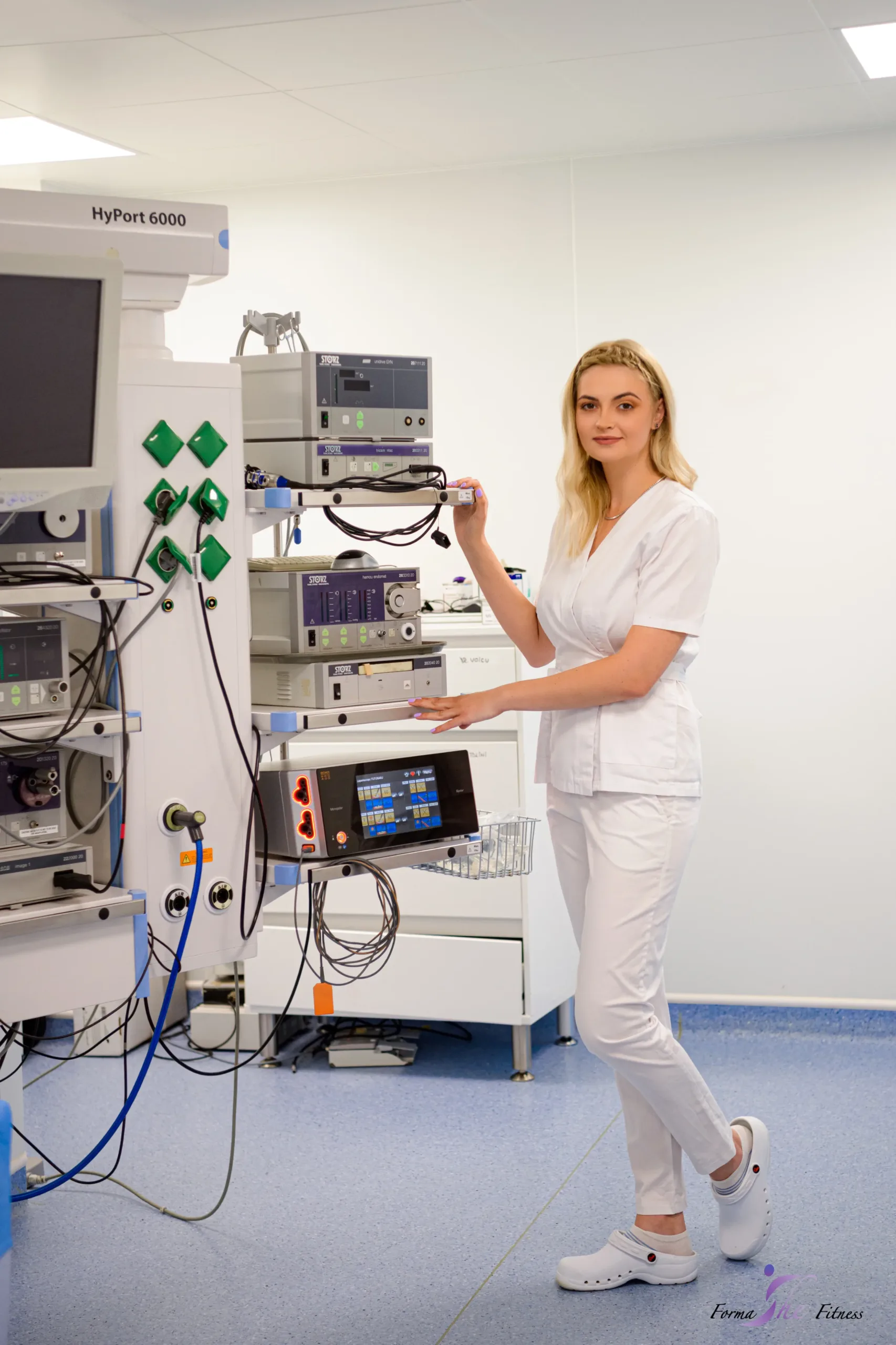
Every profession requires certain skills and abilities. What important attributes do you think a doctor should have?
I believe that besides specific training in the field, a doctor needs a lot of empathy. A good doctor should have the ability to explain medical information in a way that the patient understands and adapt their speech according to the person they are addressing.
Considering that you work with people, you need to be able to communicate effectively, otherwise the patient will not be compliant with the treatment, they will not listen to your advice because they don’t understand it, and they don’t know how important the medical recommendations are.
Another important aspect, which I believe applies to any field in order to excel, is passion, without which work is a struggle, and the aforementioned happiness in the workplace will not exist.
Doctors face a lot of pressure in their profession, and it is essential for them to approach even the most difficult situations with empathy, understanding, and compassion. How do you handle this aspect and how do you treat situations based on their severity?
I like to think that I am an empathetic person, but also capable of dealing with any situation with the necessary detachment in this profession. I believe that the desire to prioritize the patient guides my actions constructively and helps me cope with any extreme situation. One thing I would like to emphasize is the patient’s understanding of their illness. Here, the doctor can insist on explaining the diagnosis, treatment options, and possible complications, especially in the case of a serious diagnosis.
Among the multitude of medical specialties you can pursue as a resident, you chose gynecology. What were the criteria that influenced your choice of this branch of medicine?
First of all, I was drawn to the obstetrics aspect after doing a summer internship in a maternity hospital in Bucharest. Natural childbirth fascinated me, and I wanted to learn more about this specialty, which helps bring a child into the world in safe conditions.
I realized that in gynecology, the doctor not only treats sick patients. The doctor has the opportunity to deliver good news and assist in the birth of a child. Secondly, I took into account my personality type and considered whether it suited this specialty. Obstetrics and gynecology is a surgical specialty in which you need to be proactive, know how to prioritize emergencies, and be capable of both surgical and medical activities.
Then, I realized the wide range of activities offered by this specialty. You can focus solely on obstetrics or perform gynecological surgeries. You can specialize in gynecologic oncology or perform minimally invasive procedures through laparoscopy. It is a complex specialty, so I decided to take on the challenge, and I believe I made a good decision.
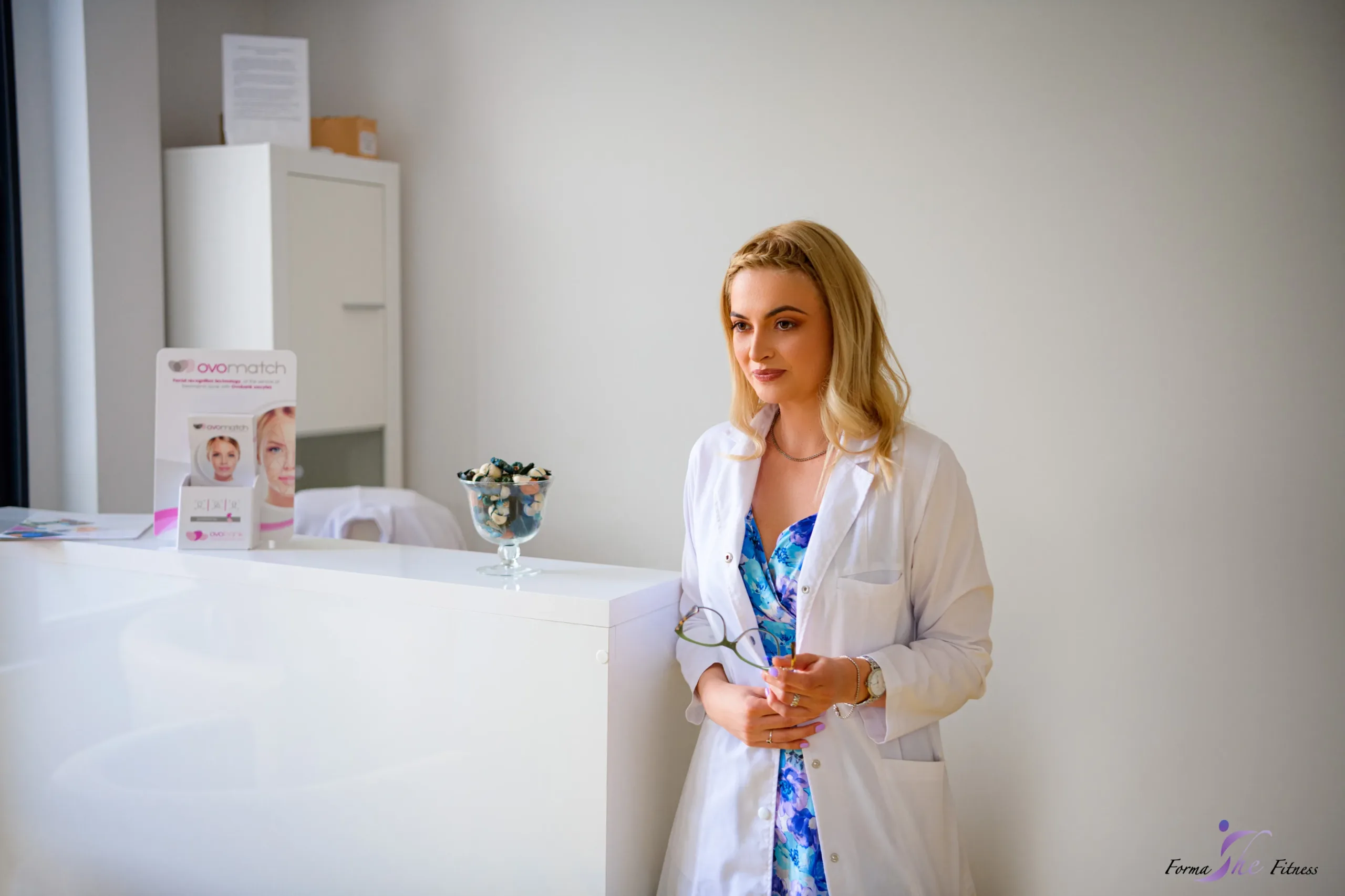
What are your thoughts for the future, from a professional standpoint?
A doctor’s education never ends. In addition to continuous learning, I want to deepen my knowledge of laparoscopic surgery. I believe that it represents the future of gynecological surgery, with its minimally invasive approach allowing patients to recover more easily and reducing hospitalization time. In the obstetrics field, there is still so much to be done. There are pregnancy complications that cannot be prevented and are worth investigating, and through assisted reproductive techniques, we can offer a chance to couples struggling with the diagnosis of infertility, for various reasons. I hope to continue to contribute in the field of public health and to participate in the education and training of women regarding their bodies.
Mihaela Fitzpatrick
Mihaela Fitzpatrick este Directorul și Fondatorul FormaSheFitness, unde supervizează afacerea și brandul pe întregul spectru de platforme online, digitale și print. Cu o experiență de peste 10 ani în industria wellness-ului, Mihaela se dedică scrierii, editării de conținut, gestionării proiectelor online și dezvoltării strategiilor de social media. Este absolventă a European School of Economics din Londra, unde a finalizat un program postuniversitar în Event Management, și, totodată, absolventă a Universității Româno-Americană, unde a absolvit un Master în Administrarea Afacerilor în Turism, precum, a obținut și o licență în Drept. Mihaela este responsabilă de gestionarea tuturor activităților corelate cu FormaSheFitness, inclusiv: Redactarea, editarea și publicarea conținutului aferent revistelor tipărite și online, bannerelor și videoclipurilor. Organizarea de evenimente, planificare și prezentări, inclusiv călătorii în diverse orașe și locații pentru evenimente, crearea de rețele și dezvoltarea oportunităților de afaceri. Organizarea și gestionarea tuturor filmărilor și shooting-urilor, selectarea locațiilor, crearea conceptelor, alcătuirea echipei, supravegherea filmărilor, shooting-urilor, selectarea și editarea conținutului pentru revista hard print și online, ori pentru contentul online. În momentele în care nu este implicată în munca dificilă de construire a afacerii, de gestionare și generare de idei noi pentru FormaSheFitness, Mihaela explorează lumea, călătorește alături de Shiba Inu-ul său, “Foxy”, și “așterne pe tastatură” experiențele dedicate călătoriilor fit și excursiilor prietenoase cu animalele de companie. Mihaela are un stil de viată activ și iubește activitatea fizică sub toate formele sale – exerciții fizice, inclusiv antrenamentele la domiciliu, în sală și în mijlocul naturii. Crede cu tărie, că sănătatea și fitness-ul ar trebui să fie o plăcere și susține importanța de a nu fi, doar, în formă și sănătoși, ci, și de a evidenția acest aspect. Site-ul FormaSheFitness, revista și magazinul online au fost create pentru femeile moderne și active, care apreciază sănătatea fizică și mintală, fitness-ul, frumusețea, sportul, moda în fitness și călătoriile sănătoase.
Recent Posts
Related Articles
CrossFit exercises practiced outdoors or at home
Concentration and discipline are indispensable for succeeding in any training program, regardless...
July 27, 2023Health guide for “ageless” women
Discover the Benefits of Physical Exercise and the Best Types of Training...
July 27, 2023Home-Based Pregnancy Workout in Comfort
The Benefits of Prenatal Home Workout The way we interact with people...
July 10, 2023Supplementation with Vitamins and Minerals
Essential nutrients for the body The macronutrients and micronutrients are essential for...
July 10, 2023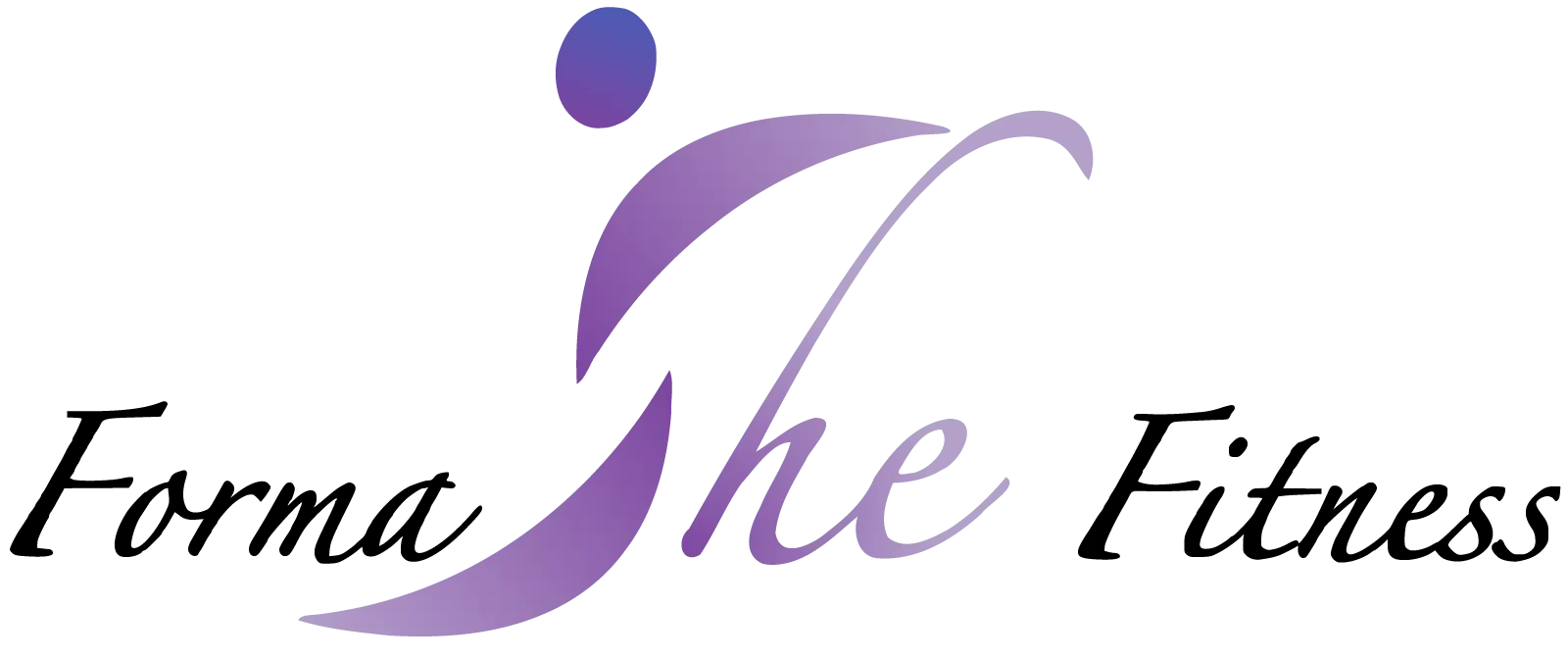






















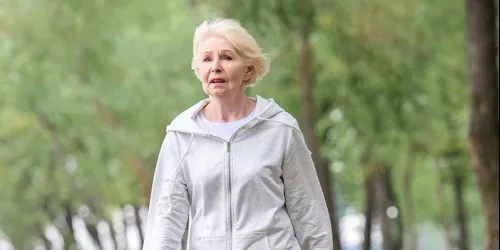


Leave a comment